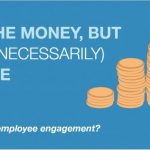 Oftentimes, our current situation of progress and success blind us to what is approaching on the horizon. It is very hard to avoid this, considering partly what makes us human is this ability to become comfortable in a present state, even if that present state will become harmful to us in the future. This is known as the Affect Heuristic, a way in which human beings show bias in making a decision, taking action that may be contrary to logic and objective thought.
Oftentimes, our current situation of progress and success blind us to what is approaching on the horizon. It is very hard to avoid this, considering partly what makes us human is this ability to become comfortable in a present state, even if that present state will become harmful to us in the future. This is known as the Affect Heuristic, a way in which human beings show bias in making a decision, taking action that may be contrary to logic and objective thought.
Look at the financial crisis of 2008, where our lavish expenditures and comfort led to our own demise in many respects – a perfect example of how our society was blinded by the comfort we had come to inhabit.
We have seen the effects of what can happen when we let our guard down – when we start ignoring the signs that may be staring us in the face. Instead of letting the data or trends tell us what to expect and how to prepare for what may be approaching, we continue on our path of neglect and foolishly act surprised when the situation hits us hard.
Let’s take a look at a specific example from the recent past – the decline of sales in the U.S. auto market. The 1990s was a time of great economic success and excess. People had more money to spend, and they spent it on lavishly large vehicles such as SUVs, which the auto market in America was providing plenty of. One could argue that the events of the past decade were not foreseeable by the U.S. auto industry, and thus their inability to react was excusable and understandable – hence the bailouts. However, it was less than 30 years ago that the industry suffered much of the same declines as they did in the past decade.
A report released in 1980 by Natural Resources and Commerce Division of the Congressional Budget Office indicated that the auto industry in America was suffering unprecedented decline. The reasons cited for this decline may sound very familiar:
- Jump in gasoline prices
- Rise in interest rates and enactment of credit controls
- Economic recession
The impact that followed may also sound familiar – consumers switching to compact cars that met their needs which were more readily available by foreign automakers. The suggestions and predictions of the CBO stated that in order for the U.S. industry to become viable and competitive again, they would have to produce more compact cars. Perhaps it is just me, but I think there is not a clearer example of “history repeating itself” than this.
You may ask yourself how this affects you and your own situation. The U.S. automakers failed to listen to the data that was undoubtedly available to them. Are you in tune with what the data are telling you? Are you listening to it to make decisions for the future? Or are you blinded by perhaps recent success and letting that bias your decisions and direction for the future.
This isn’t a situation where ignorant people made foolish decisions. More so, it is simply a lack of understanding of how valuable data can be. Decisions can’t simply be made on gut instinct; and while we should all listen to our gut, using it as a sole means of direction can be misleading and dangerous to our own condition.
If history tells us anything, it says that it will visit us again – and the only way to overcome those reenactments is if you stay in tune with what has happened. A good consumer of research has the ability to take in is happening and be proactive in addressing it. Use the data to recycle what has succeeded and reevaluate what has failed. In short, don’t fall victim to your own comfort bias – but be objective and deliberate in your approach.




